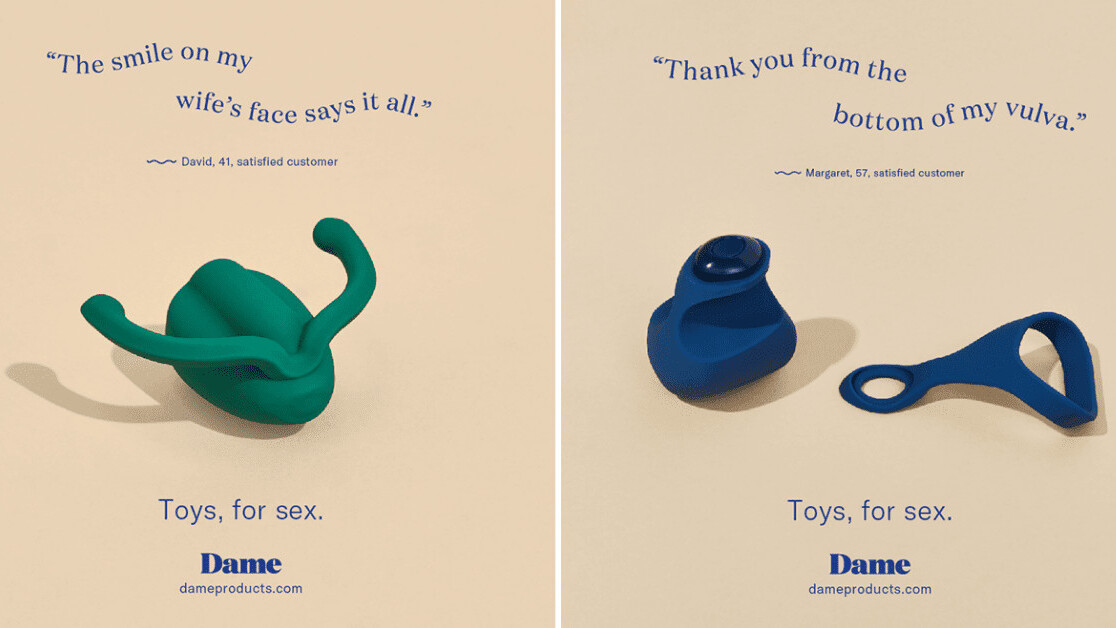
On NYC’s subway you’ll probably spot a few ads promoting medication for erectile dysfunction and low male libidos from companies like Hims and Roman. But you won’t see ads for Dame’s sex toys since the Metropolitan Transit Authority banned its campaign late last year — after initially approving it.
Because of these double standards in advertisements, Dame, a female-founded sex toy company is suing the MTA for censoring its campaign — and this isn’t the first time ads for female sex toys have been rejected from subway spots in NYC.
Earlier this year, Dame’s co-founders, Alex Fine and Janet Lieberman launched #PleasureIsHealth, a campaign also referred to as #DerailSexism, after the MTA banned their ads.
In September 2018, the MTA approved of Dame’s tasteful and balanced ad campaigns which featured their products, slogans such as, “Toys, for sex,” and testimonials from customers. But by late November, after Dame had reportedly spent $150,000 on the campaign, the MTA had rejected Dame’s ads citing it had updated its own guidelines preventing sexually oriented businesses from advertising.

“I don’t even know the reason why because I was treated so poorly by the MTA. They wouldn’t even tell us how they made the distinction,” Alex Fine, co-founder of Dame told TNW. “The most shocking thing to people is when I show them a ‘Hims’ ad, an approved campaign for erectile dysfunction, compared to ours, they don’t see the difference.”
“The MTA won’t work with any sexually oriented businesses so I questioned why ‘Hims’ and other libido products are all viewed as ok while we’re not?” Fine explained. “Their argument is that those products and services are categorized as health.”
When it comes to women’s bodies, there’s confusion about what constitutes sexual health and sexual pleasure. But research from the Center of Sexual Health Promotion at The University of Indiana suggests that “Vibrator use among women is common, associated with health-promoting behaviors and positive sexual function, and rarely associated with side effects.”
Vibrators are regularly prescribed by doctors as a drug-free, affordable solution for low-libido, arousal disorders, and sexual function issues for those recovering from abuse, cancer, and more. With this in mind, Dame argues that if they can’t run their ads, people suffering from these kind of issues won’t know what options are available to them.
Earlier this year, CES revoked an award for Lora Dicarlo’s high tech female sex toy for being “immoral, obscene, indecent, profane, or not in keeping with CTA’s image.” Lora Dicarlo created a groundbreaking product, one that’s rooted in sex positivity, inclusion, and seeks out to tackle female sexuality taboos — something Dame can relate to.
The censorship restrictions imposed by advertising giants such as the MTA represents yet another hurdle, among many, for women-centric tech companies like Dame.
Get the TNW newsletter
Get the most important tech news in your inbox each week.





